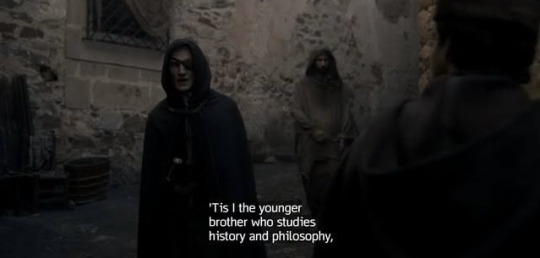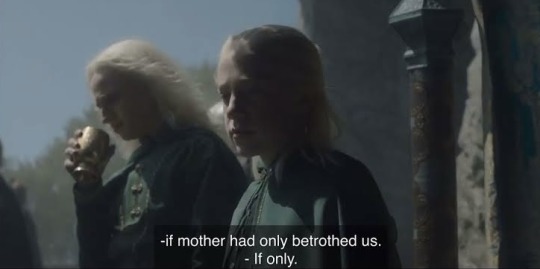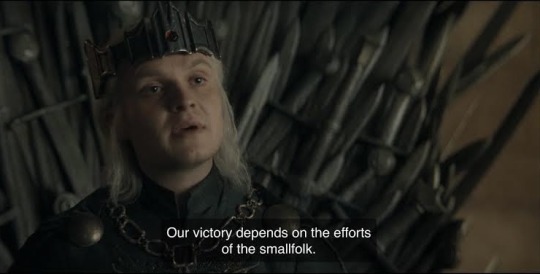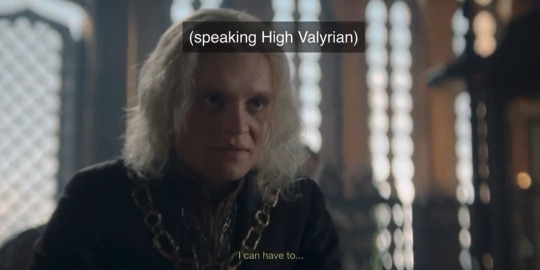#I know it’s easy to lean on the Cain-Abel story as a frame of reference but if you’re just talking about the act of harming your brother
Explore tagged Tumblr posts
Text
Already seen a lot of people use the Cain and Abel archetype to describe Aegon and Aemond’s fratricidal relationship, when more importantly I’d argue that they represent an inversion of the trope.
Traditionally, the tale represents settled lifestyles (Cain the farmer) overcoming nomadic Neolithic customs (Abel the shepherd) through the allegory of fraternal murder- aka, the Cainist cultural revolution defeating Abel’s tradition. Given Aemond is the one who, possessed by jealousy over his brother and a desire for control, turns to fratricide, one would expect him to be characterized as the homicidal Cain-figure, and Aegon as the unsuspecting Abel-figure. However, due to Aemond’s continual fulfillment of tradition and the status quo, and reliance upon Valyrian tradition as the basis for his claim, ideologically-speaking he’s a closer match to Abel. Not to mention, given he also flaunts the qualities which his father continually attempted to emulate (dragon-rider, scholar, fluent Valyrian speaker, pious, etc) - he closer matches the image of the father’s ‘prized son’, we can argue that the Viserys-Aemond bond closer matches the God-Abel dynamic.


Conversely, Aegon is constantly affirmed to be a break from ruling tradition - from a psychological standpoint he departs from the archetypal image of the ruler by being shown to be melancholic and tempestuous, not to mention alienated from his paternal culture and language; whilst from an ideological standpoint, he openly argues against the practice of Valyrian sibling incest and advocates for an embrace of monarchial socialism, departing from the wishes of his advisors, and the traditional customs of the kingdom. Thus, Aegon embodies a cultural revolution, and aligns better with Cain.


The Cain-Abel reading of Aegon and Aemond’s actions doesn’t work out because their fratricidal actions align Aemond with Cain as an antagonist, and Aegon with Abel as a victim - but their ideologies match Aemond with Abel as traditionalists, and Aegon with Cain as revolutionaries. One can make the argument that the analogy still works, due to it being a deliberate inversion of the tale, with tradition striking down any act of upheaval, as opposed to revolution destroying tradition, but I feel that there isn’t enough evidence to support that decision. Naturally, creatives always reflect on Cain and Abel to some extent due to its prevalence as a touchstone of fratricide in the arts, but due to caveats like the action-ideology dissonance and the lack of a father figure endorsing Aemond (or either of them for that matter), amongst others, I think it’s a tenuous stance on its own.
#I know it’s easy to lean on the Cain-Abel story as a frame of reference but if you’re just talking about the act of harming your brother#just say fratricide because Cain and Abel comes with its own truckload of ideological and symbolic and historical implications#I’m reading Anthony Sattin’s Nomads rn and it touches briefly on the Cain/Abel story and what it represents for the Neolithic Evolution#sooo god I’d really recommend#hotd#house of the dragon#aemond targaryen#aegon ii targaryen#aegon targaryen#hotd analysis#hotd meta#Cain and Abel#writings#fratricide
67 notes
·
View notes